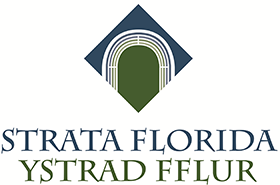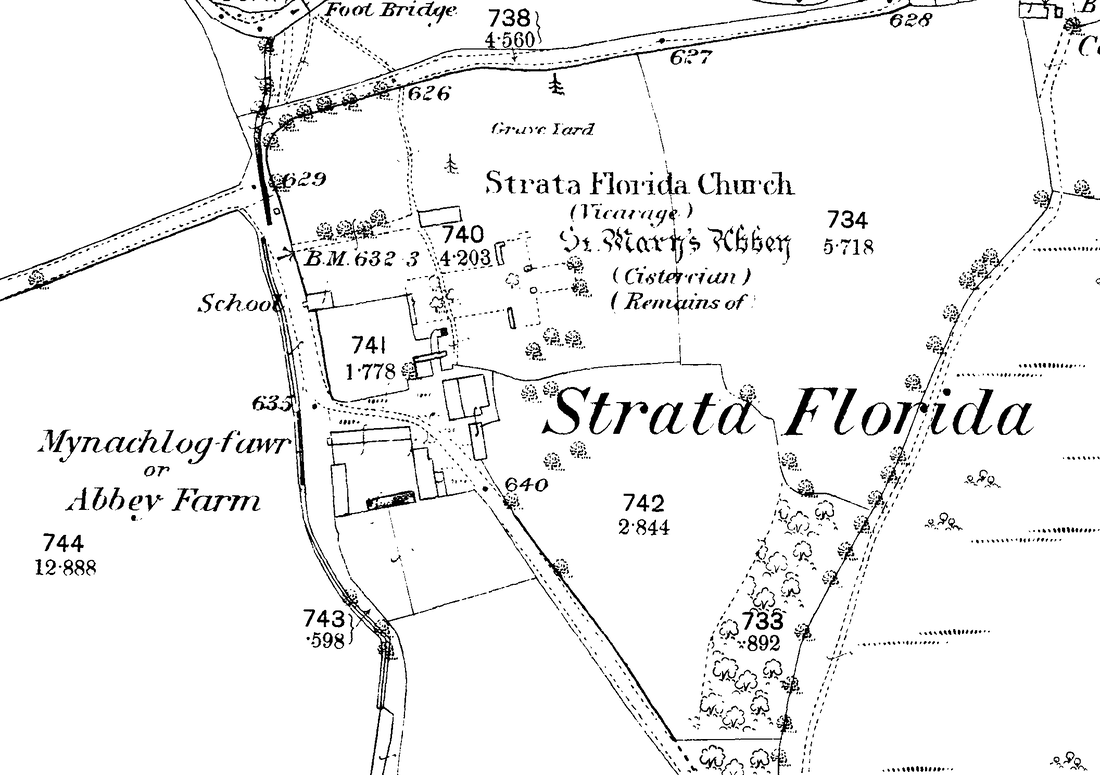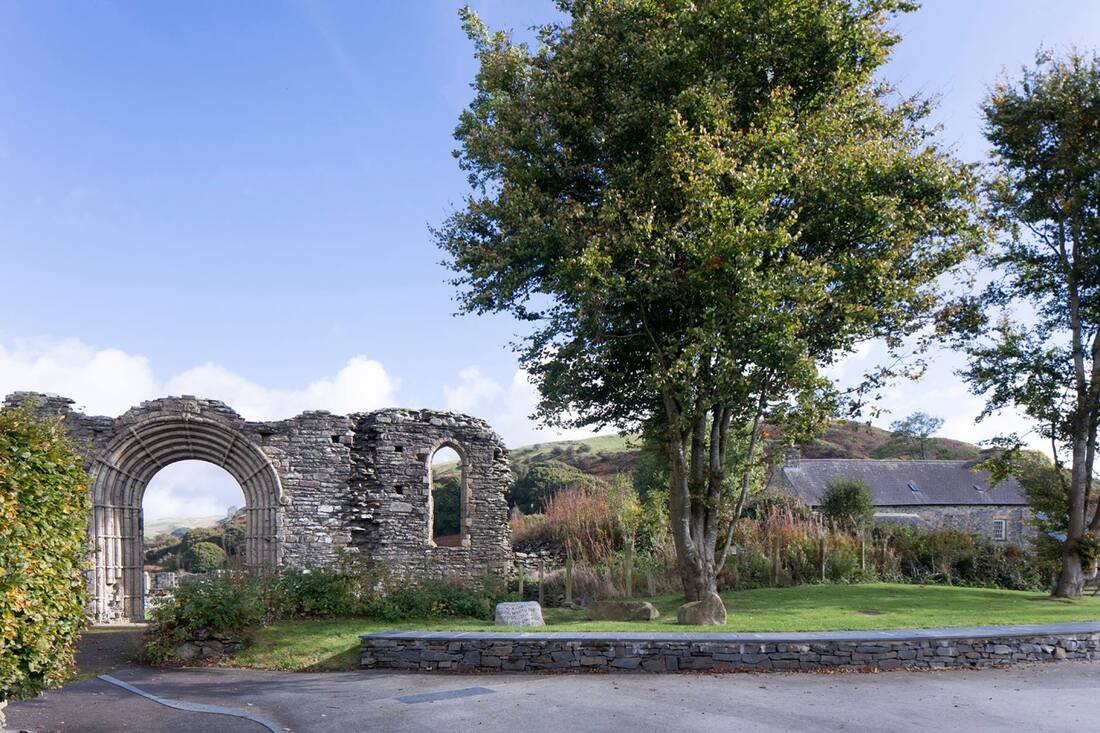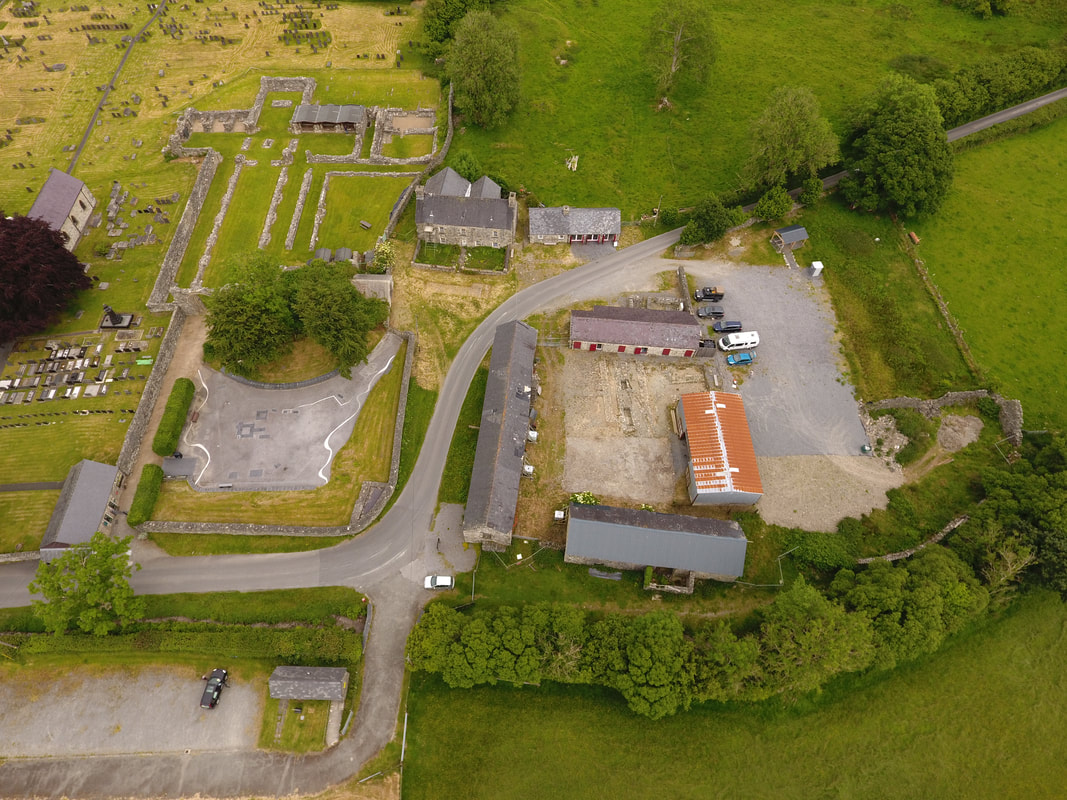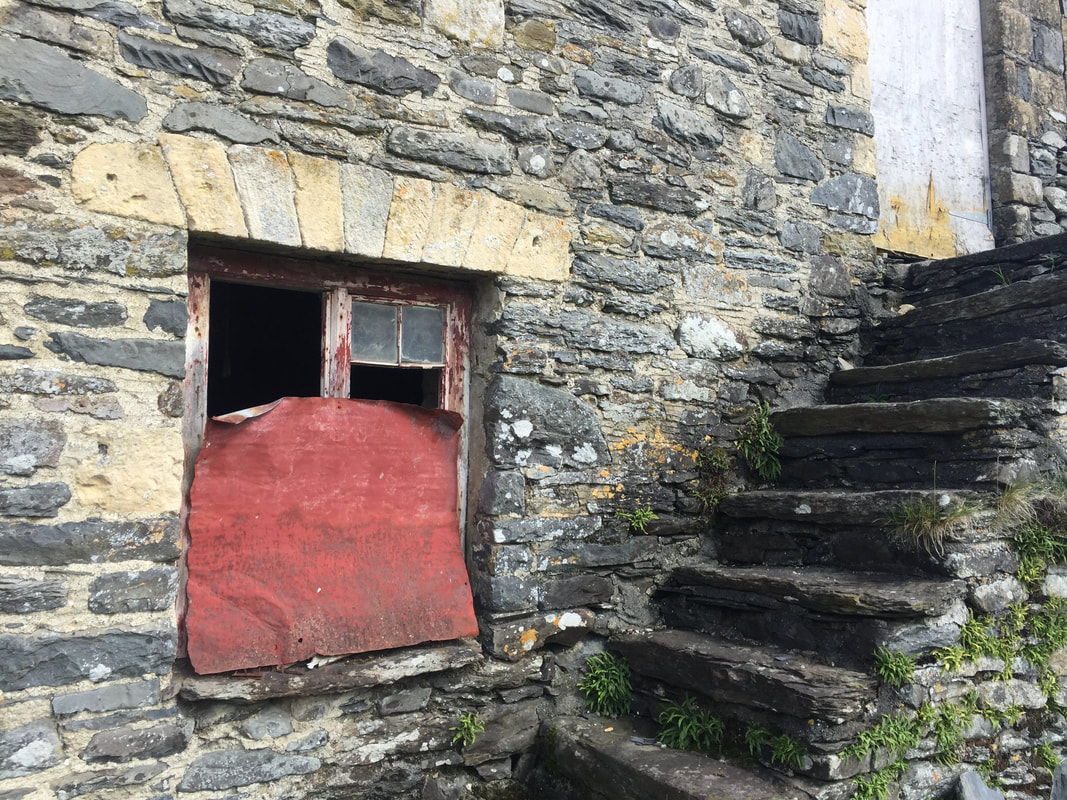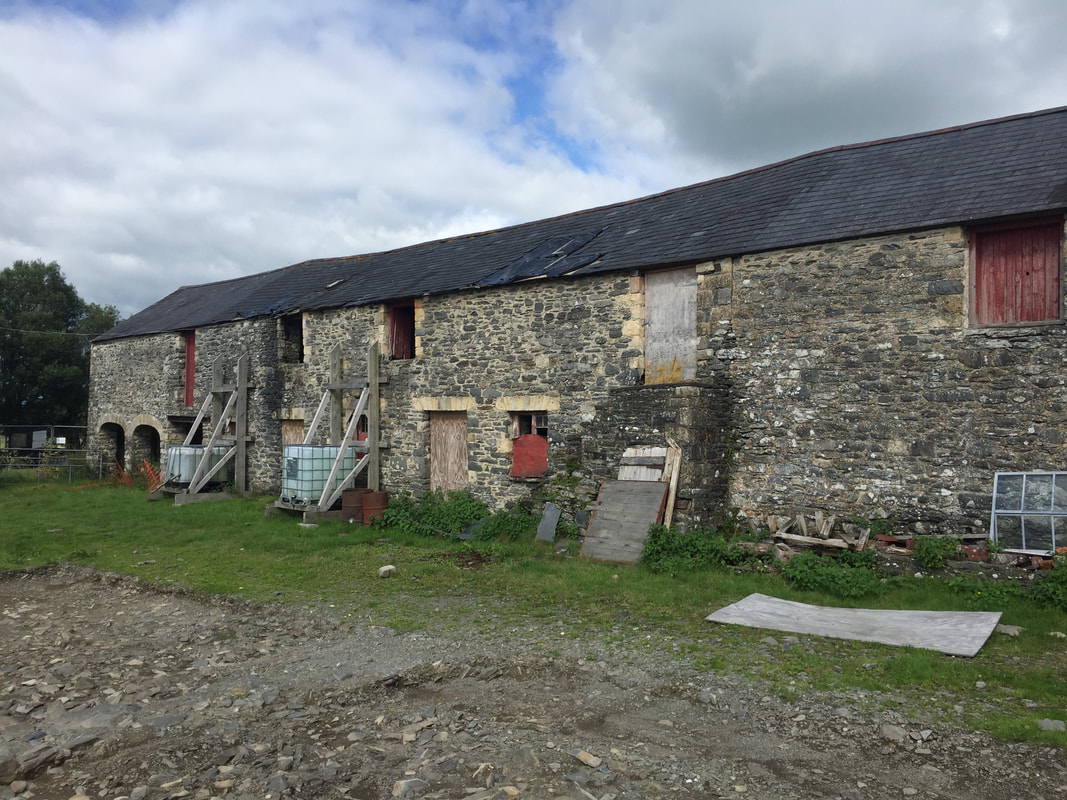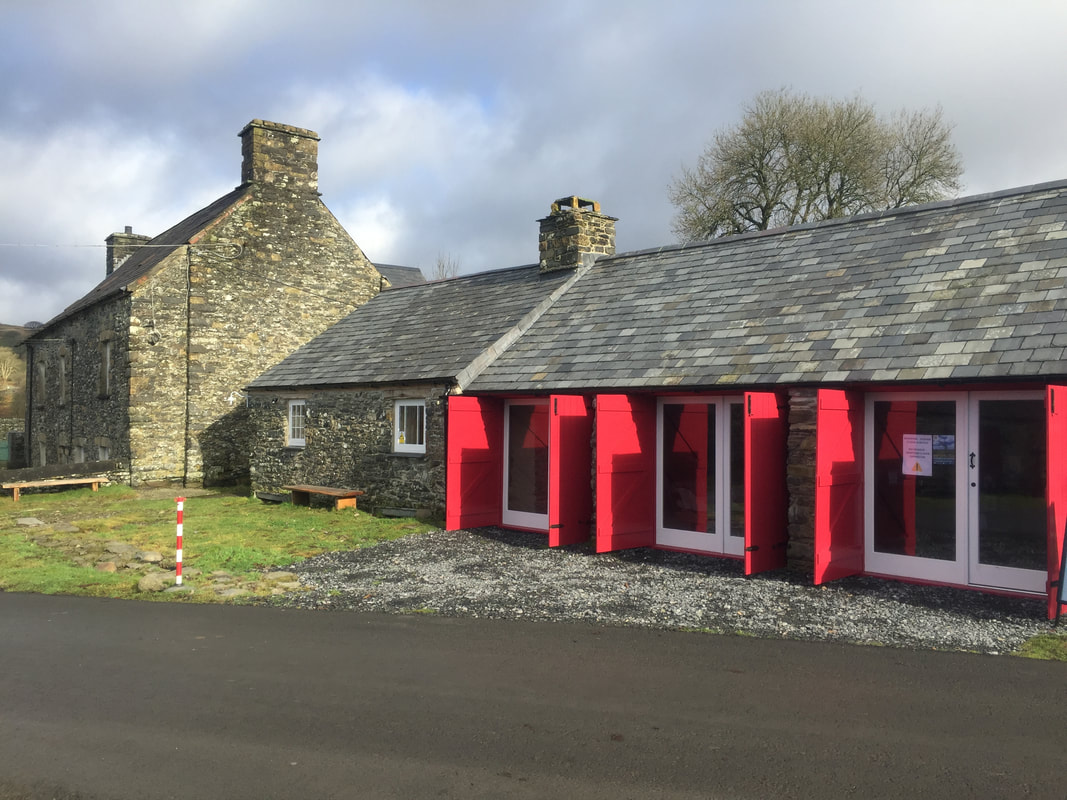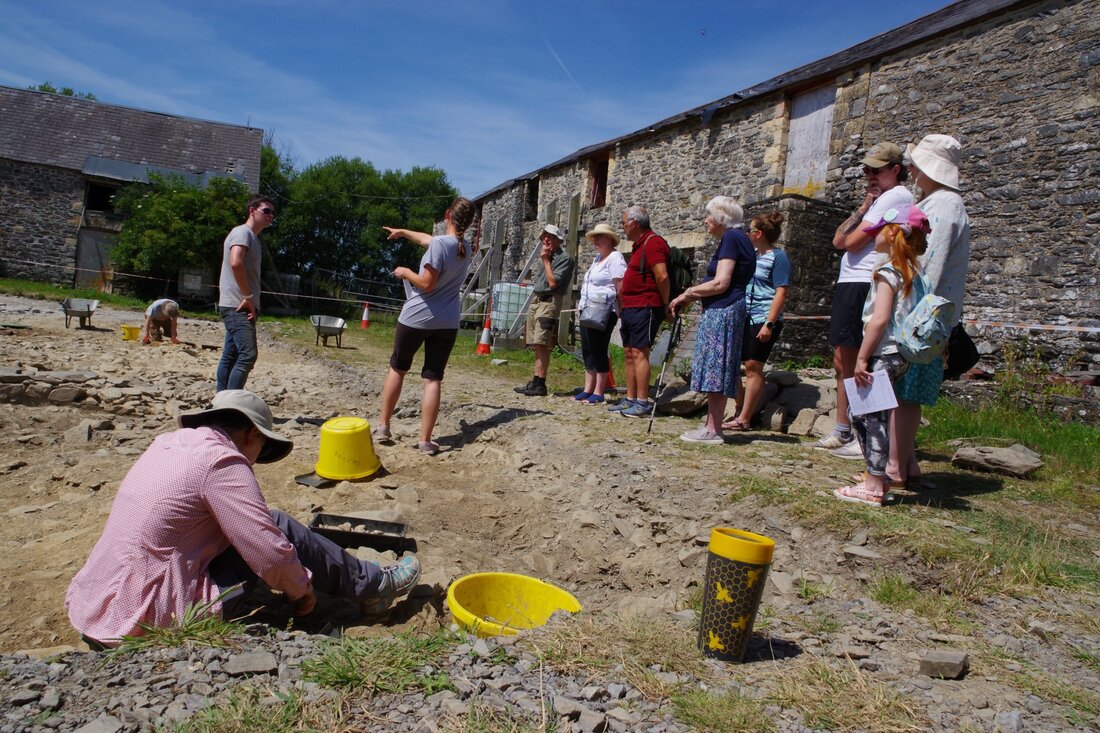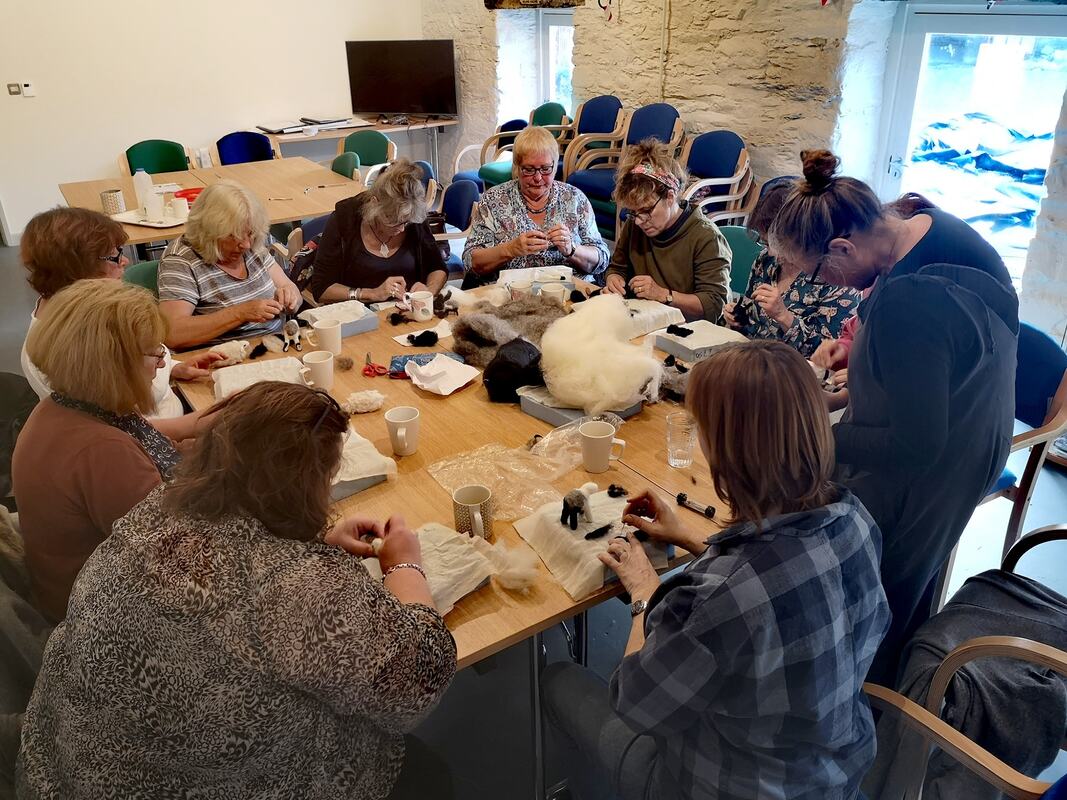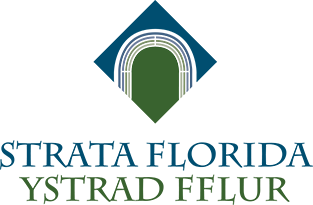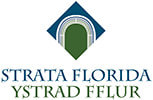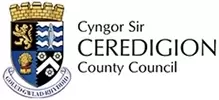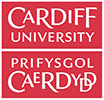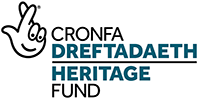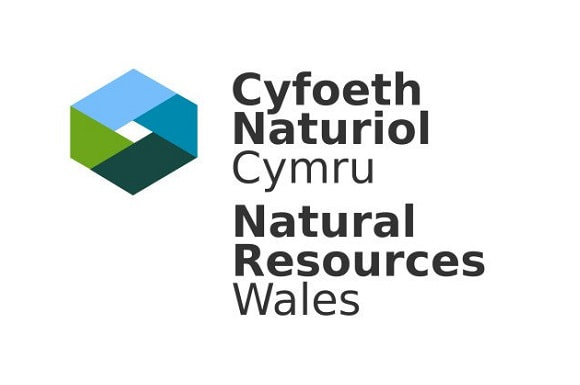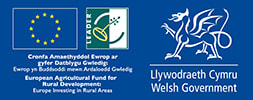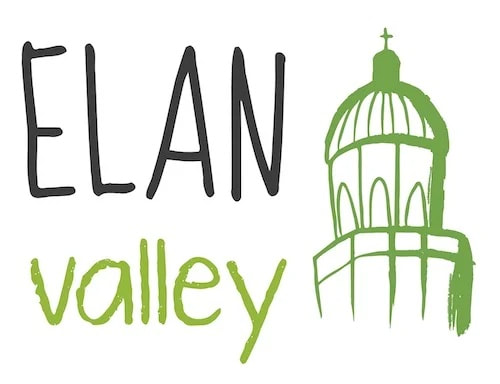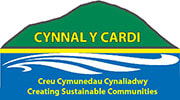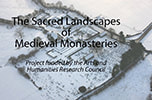Our Aims
The Strata Florida Trust was set up as a charity in 2006 and bought the farm of Mynachlog Fawr in 2016. The three main aims of the Trustees are to:
- preserve and restore all of the buildings, using sustainable methods and the best available technologies;
- set up a part-residential Strata Florida Centre to help people learn about heritage and conservation, environmental issues, and the language and cultures of Wales;
- give a warm welcome to visitors, residents and local people and help them enjoy the rich environment, history and culture of the area.
History
|
Strata Florida, situated at the geographical centre of Wales, is a special place. The land around it is rich in history through the centuries. In the Glasffrwd valley Bronze Age peoples set up numerous burial cairns for their dead; in the Iron Age a large hill fort was built on nearby Pen-y-Bannau; and through the Teifi valley the Romans drove their new, straight roads. The many holy wells to be found in the area suggest that it was a place of sanctity over a long period.
The Cistercians first came to Strata Florida from Whitland in 1164, seeking a remote but fertile place at Henfynachlog to practice their faith and make a living. Rhys ap Gruffudd, prince of the kingdom of Deheubarth in south Wales, re-founded the Abbey in 1184 on its present site, and it then became an important cultural centre for the independent Welsh kingdoms. Some of the earliest and most important texts in Welsh, including the Hendregadredd and White Book of Rhydderch Manuscripts, were almost certainly written in the Abbey, and Welsh poets, including the most famous of them all, Dafydd ap Gwilym, sang its praises. The monks identified with the Welsh princes and their hopes for an independent identity, and many of these leaders and their kin were buried at Strata Florida. The Abbey paid a price for its loyalty, however, at the hands of the English armies of Edward I and during the rising of Owain Glyndŵr, the last native Welshman to hold the title of Prince of Wales and who led a war of independence against the English. The monks and their workers developed a thriving economy within the large estate they had received from Rhys ap Gruffudd. It depended largely on sheep farming, the produce of which was exported from Aberarth, another part of the Abbey’s lands. In 1539, however, Henry VIII dissolved the Abbey. The buildings fell into ruin and today, after many years of custodianship by local gentry, their remains, including the famous arch from the Abbey church’s west entrance, are now in the care of Cadw. In time many of the stones were reused for new buildings – including the farmhouse of Mynachlog Fawr. For over three centuries the tenants of the farm earned an often difficult living from the land around, which they still do today, although the Trust has bought its historic core. |
The House and Buildings of Mynachlog Fawr
|
Part of the Grade II* listed Mynachlog Fawr farmhouse was originally built in the sixteenth century out of the remains of the Abbey’s refectory, as a gentry house, out of parts of the monastic buildings, as a residence. It was then rebuilt as a mansion in 1670-80. The ground floor contains a panelled parlour containing features of its gentry past, including a late 17th century panel painting and painted ceilings. There is also a 17th century staircase, and a large kitchen, which preserves fittings from its use as a Welsh tenant farmhouse in the 19th and 20th centuries.
Spanning several centuries, the house and the objects it contains have a fascinating social history and architectural story to tell. Today, though, the house is in poor condition and in need of urgent restoration. Thanks to the generosity of donors and funders, the Trust has already restored two of the farm buildings: the Beudy (cowshed), a grade II listed building, which was converted in 2019 into a community space and Trust offices; and Tŷ Pair, a detached kitchen, and the adjoining cart-shed, restored and opened to the public in 2021 as the Mynachlog Fawr Exhibition displaying documents, household objects and agricultural equipment from the farm. We are planning four more major restoration and building projects over the next few years. |
Our plans
|
Our chief priority is to secure funds to complete the restoration of Mynachlog Fawr farmhouse and the construction of new facilities and accommodation building. The remaining farm buildings are in poor condition, even when temporarily repaired, and they need to be renovated as soon as we can secure funding. In addition, in order to offer more courses in the Strata Florida Centre, it is essential that we are able to provide adequate learning and accommodation spaces.
There are four buildings we plan to restore or build:
Once these buildings are in use we can start offering a wide range of courses in these three areas, building on the success of the Archaeology Summer Schools:
|
Our people
The Strata Florida Trust is run by a board of 12 Trustees, led by a Chairman. The board has a broad spectrum of local and national expertise in heritage, tourism, conservation and academic disciplines. The Trust employs an Operational Director who manages the projects and daily activities of the Trust.
|
The Trustees
Michael Taylor (Chair) Manon Antoniazzi (Secretary) Helena Venables Richard Broyd Councillor Ifan Davies Professor Dafydd Johnston Gaenor Parry Michael Taylor Dr Eurwyn Wiliam Peredur Evans |
Trust Officers
Carys Aldous-Hughes (Operational Director) Tiffany Evans (Heritage Engagement and Outreach Officer) Kate Sullivan (Heritage Engagement and Outreach Officer - Maternity Cover) Anna Roberts (Administration Assistant) Nathan Goss (Buildings Manager) PJE Accountants (Accountant). Trust Special Adviser Professor John Darlington Trust Ambassadors Professor Roger Earis Dr Ann Rhys Jonathan Jones Bryn Howell-Pryce Dr Jane Davidson Professor Dame Elan Closs Stephens John Wildig |
Partners and funders
The Strata Florida Trust is very grateful for funding grants from many bodies, including:
National Lottery Heritage Fund, World Monuments Fund, Welsh Government, Benefact Trust, Cynnal y Cardi, Arts Council for Wales and the Sacred Landscapes of Medieval Monasteries project funded by the Arts and Humanities Research Council.
We work with many partners including The Prince’s Foundation, University of Wales Trinity Saint David's.
National Lottery Heritage Fund, World Monuments Fund, Welsh Government, Benefact Trust, Cynnal y Cardi, Arts Council for Wales and the Sacred Landscapes of Medieval Monasteries project funded by the Arts and Humanities Research Council.
We work with many partners including The Prince’s Foundation, University of Wales Trinity Saint David's.
Strata Florida Research Project
Since 1999, there has been a continuous programme of archaeological and historical research at Strata Florida, into which the results of the Summer School excavations feed. Research began as part of the training programme of the University of Wales Trinity Saint David’s at Lampeter but has now become a Project of the Strata Florida Trust itself. This is still in continuing partnership with the university through a major Arts and Humanities Council grant studying the Sacred Landscapes of Medieval Monasteries in conjunction with Leeds University Institute of Medieval Studies.
Community
|
We work closely with the local community, from running community events and workshops, to hosting local school and organisational visits, and making spaces available for community use.
We run a variety of online and in-person talks, workshops and events. These have included a family art and stories workshop, which drew inspiration from the stories of the objects within the exhibition, an online talk discussing women’s work in 19th Century Wales, and a community textile project created collaboratively by local people during the Covid pandemic. This was co-ordinated by artist Catrin Williams and resulted in a banner depicting life in the area 100 years ago, now on display in the Tŷ Pair exhibition. For upcoming events and courses, please click here . An active Community Liaison Group helps us in our work. One of the Group’s projects has been to raise funds to create a permanent version of ‘The Pilgrim’, a sculpture by Glenn Morris. This first stood as a wooden figure on a hill overlooking Strata Florida and became a well-loved landmark. In future we’d like to extend our definition of ‘community’ much more widely, to embrace anyone, in Ceredigion, in Wales and throughout the world, interested in our work and our ideals. |
|
CYSYLLTU Â NI:
GET IN TOUCH: |
|
Privacy Policy (Registered Charity No: 1117469; Company Limited by Guarantee no. 5862222)
